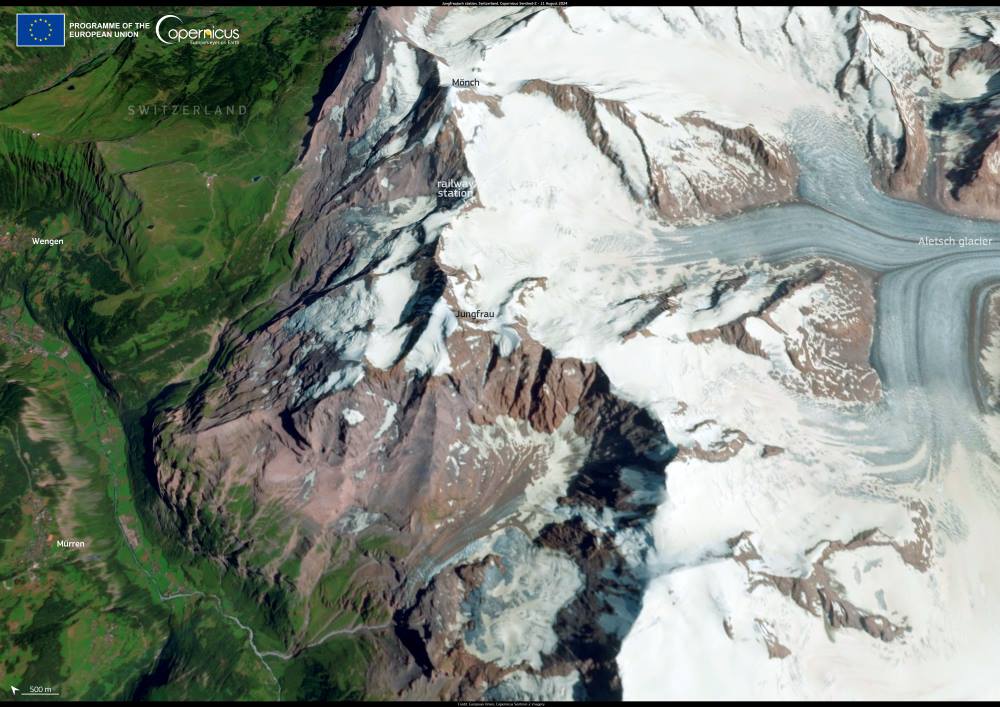Perched at an altitude of 3,454 meters, Jungfraujoch is Europe’s highest railway station and a popular observation point in the Swiss Alps. Situated between the towering Jungfrau and Mönch peaks, it offers sweeping views of glaciers and rugged mountain landscapes.
Visitors reach the station via a cogwheel train that climbs from Kleine Scheidegg through tunnels carved into the mountains — a remarkable engineering achievement completed in 1912. The station remains a key tourist destination, drawing travelers eager to experience the high-altitude panorama.

This Copernicus Sentinel-2 image, acquired on 11 August 2024, captures the station and a portion of the Aletsch Glacier, the longest glacier in the Alps and a UNESCO World Heritage Site.
Copernicus satellite data plays a crucial role in tracking glacier dynamics, equipping scientists and policymakers with valuable insights into the long-term environmental changes affecting Europe’s mountain regions.
Featured image credit: European Union, Copernicus Sentinel-2 imagery



